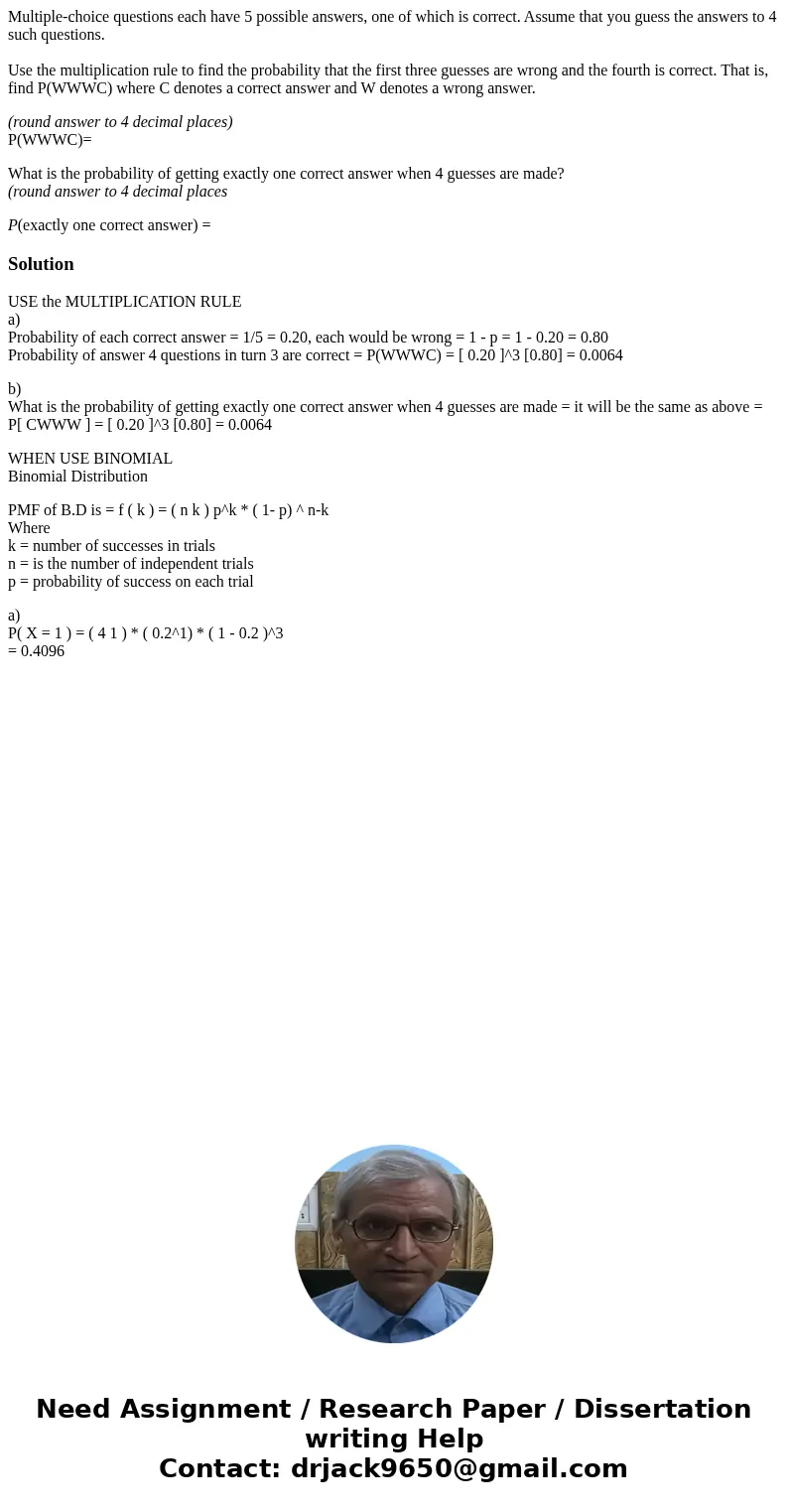Multiplechoice questions each have 5 possible answers one of
Multiple-choice questions each have 5 possible answers, one of which is correct. Assume that you guess the answers to 4 such questions.
Use the multiplication rule to find the probability that the first three guesses are wrong and the fourth is correct. That is, find P(WWWC) where C denotes a correct answer and W denotes a wrong answer.
(round answer to 4 decimal places)
P(WWWC)=
What is the probability of getting exactly one correct answer when 4 guesses are made?
(round answer to 4 decimal places
P(exactly one correct answer) =
Solution
USE the MULTIPLICATION RULE
a)
Probability of each correct answer = 1/5 = 0.20, each would be wrong = 1 - p = 1 - 0.20 = 0.80
Probability of answer 4 questions in turn 3 are correct = P(WWWC) = [ 0.20 ]^3 [0.80] = 0.0064
b)
What is the probability of getting exactly one correct answer when 4 guesses are made = it will be the same as above = P[ CWWW ] = [ 0.20 ]^3 [0.80] = 0.0064
WHEN USE BINOMIAL
Binomial Distribution
PMF of B.D is = f ( k ) = ( n k ) p^k * ( 1- p) ^ n-k
Where
k = number of successes in trials
n = is the number of independent trials
p = probability of success on each trial
a)
P( X = 1 ) = ( 4 1 ) * ( 0.2^1) * ( 1 - 0.2 )^3
= 0.4096

 Homework Sourse
Homework Sourse